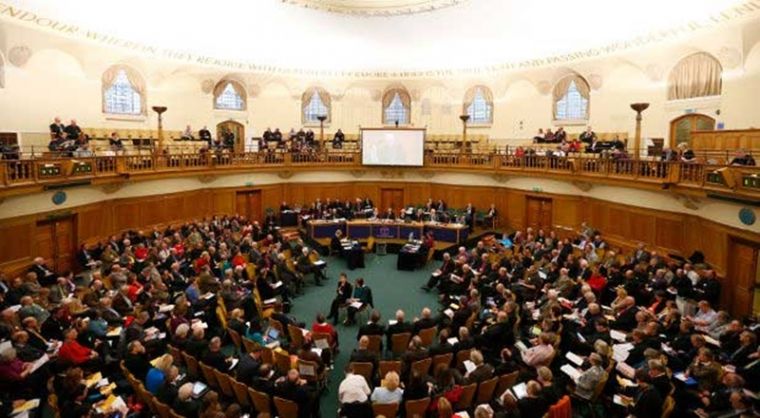
BY : Susie Leafe Christian Today
It has become an established tradition, in the run up to the Church of England’s General Synod for various interested parties to publish open letters or articles setting out their position. This year is no exception.
With General Synod due to meet next week, three letters from the orthodox wing of the Church appeared yesterday, in what appears to be a coordinated attempt to influence the ongoing debates about human sexuality, biblical authority and church law.
The first to appear was from eleven orthodox bishops, who called on their colleagues to take the time to build a “sufficient consensus in relation to doctrinal matters”. Such a consensus would require two thirds of each House of General Synod to vote in favour of the proposals – something which is not currently likely. They raised concerns about “the impact on the coherence of the Church’s life of moving ahead in a way that will create fundamental fragmentations at parish, diocesan and national levels”.
The second was an open letter to the Archbishops of Canterbury and York, from an orthodox grouping, known as ‘The Alliance’, claiming to represent 2,000 clergy, who have announced their intention “to establish what would in effect be a new de facto ‘parallel Province’ within the Church of England”, if the blessings go ahead.
The Alliance, which include leaders from HTB, New Wine and Church Society, claim that the proposals for allowing stand alone services of blessing represents, “a further departure from the Church’s doctrine”, and accuse the House of Bishops of reneging on their decision to follow the correct legal processes.
The third ‘letter’ appeared on the website of the Society of St Wilfred and St Hilda, an Anglo-Catholic grouping within the Church of England. It was less strident than the others and recognised “the toll that this is taking among LGBTQI+ Christians, who are strongly present in so many of the parishes we have been formed in and now serve”. Nonetheless, they appear to share similar concerns about, “the need for serious consideration of the theological work already being done by the Faith and Order Commission (FAOC) of the House of Bishops and, subsequently, of the implications of that work for doctrine and ecclesiastical law, which are essential to the Church’s mission”.
These letters are symptomatic of the ongoing attempts in the Church of England, the wider Anglican Communion, and many other denominations as they wrestle with the deeper theological questions raised by modern understandings of human sexuality. Others have sought to find a place of compromise, but ultimately failed.
The Alliance have set out a number of steps they plan to take – perhaps echoing the Church of England Evangelical Council’s Ephesians Fund and offers of Alternative Pastoral Oversight from senior orthodox leaders. They have also said they will “seek to cooperate with the other orthodox Provinces within the Anglican Communion”.
It is therefore worth noting that several of the signatories of their letter were present as observers or mission partners at the recent Global South Fellowship of Anglicans Assembly (GSFA). The Communiqué from that meeting reaffirmed their view that, “With the Church of England and the Archbishop of Canterbury forfeiting their leadership role of the global Communion,” a global reset is required. It also outlined the “practical steps” that GSFA has taken to create “a well structured home for orthodox Anglicans”.
This places The Alliance’s de facto province in a bit of a dilemma. According to the GSFA Covenant, for them to find a formal home in the GSFA, they will require the permission of the Archbishops of York and Canterbury. If nothing else, these letters will have raised the stakes for the formal and informal debates in York which begin next week.
Susie Leafe is director of Anglican Futures, which supports orthodox Anglicans in the UK.
Photo Courtesy :



















